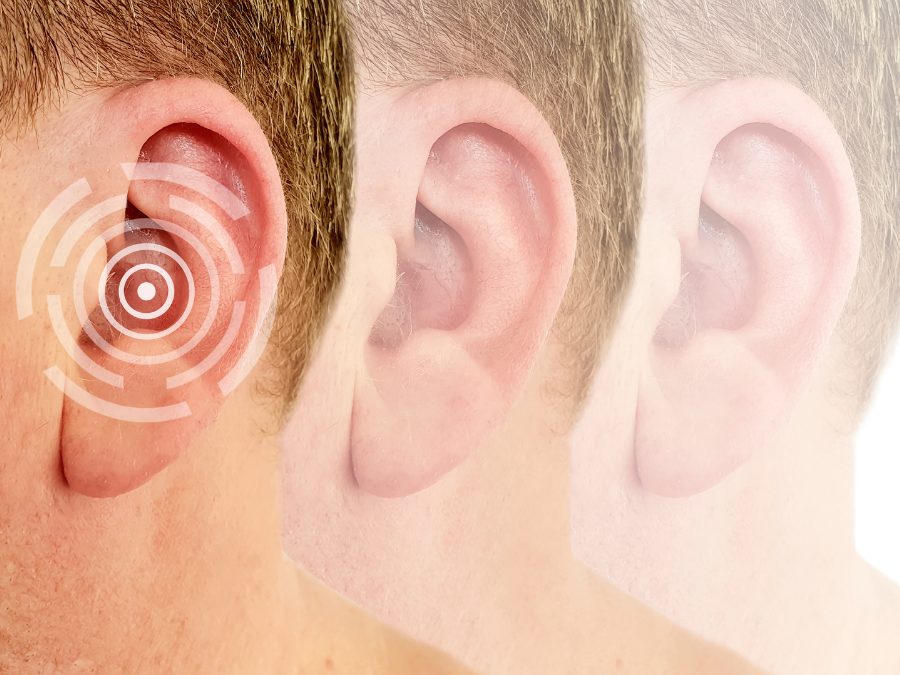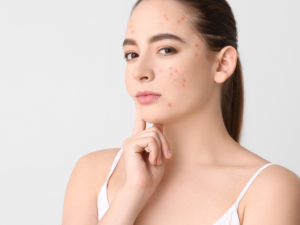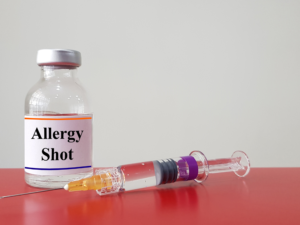Can allergies cause hearing loss? What’s the connection between allergies and ears?
These are common questions that many allergy sufferers have when it comes to the topic of allergies and hearing.
In this post, we’ll dive deeper into the relationship between your ears and allergies.
Disclaimer: The information provided in this post is intended for general knowledge and educational purposes only. It is not designed to provide medical advice or replace professional medical consultation. If you have symptoms of an ear infection or any medical condition, you should consult a healthcare professional promptly. Always follow your healthcare provider’s advice regarding your specific health circumstances.
Can allergies cause hearing loss?
The short answer is yes, but allergies don’t directly cause hearing loss.
However, they can exacerbate or contribute to certain conditions that may result in hearing problems.
Let’s take a closer look at how allergies affect your ears.
The Link Between Allergies and Ear Symptoms
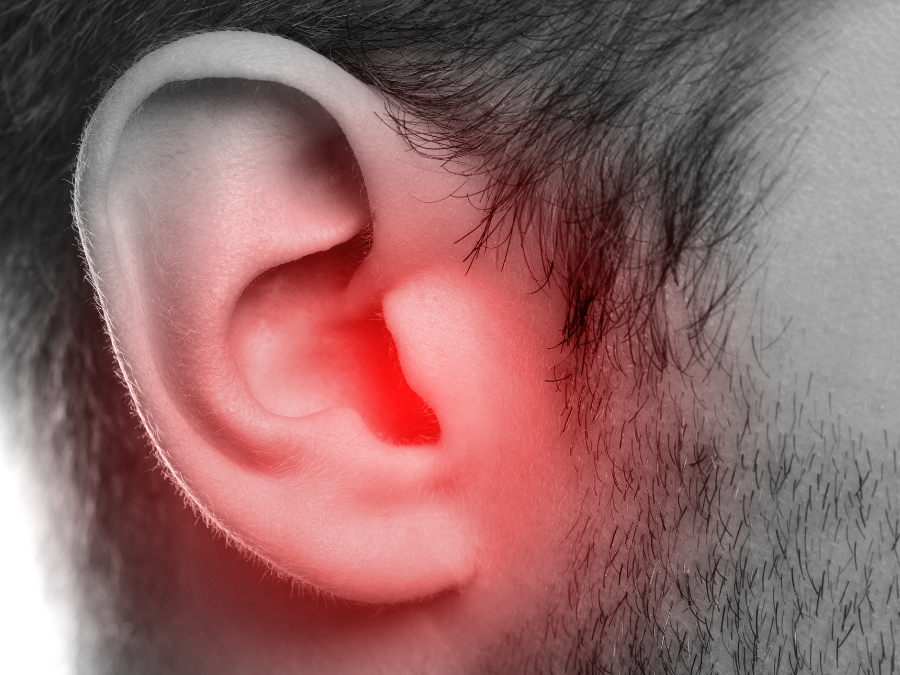
Allergies are the body’s responses to harmless substances, like pet dander, dust mites, and even laundry detergent.
During an allergic response, your body mistakes these substances for harmful invaders and releases histamine.
This leads to common allergy symptoms like a runny nose, watery eyes, nasal congestion, and yes, ear infections.
How to Protect Your Ears from Allergies and Ear Infections
Now that we understand how allergies can impact our ears, it’s important to know how we can protect ourselves.
Seasonal Allergies
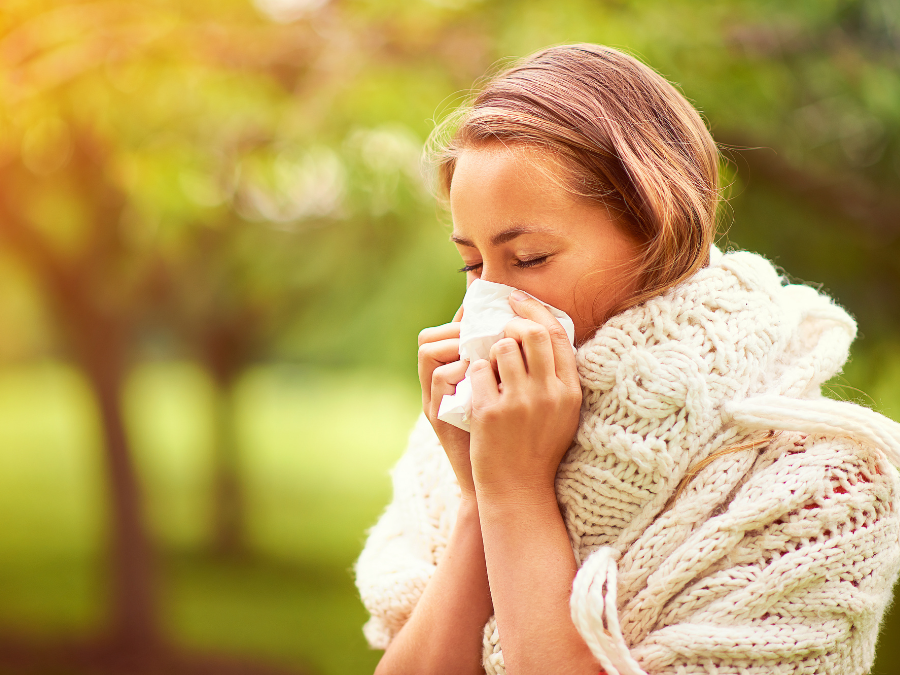
If you suffer from seasonal allergies, staying indoors during peak pollen times and using allergy medication as recommended by your doctor can help reduce symptoms.
Avoid Cotton Swabs
It’s also important to avoid using cotton swabs or other objects to clean your ears, as this can push allergens and bacteria further into the ear canal.
Avoid wetting Your Ears
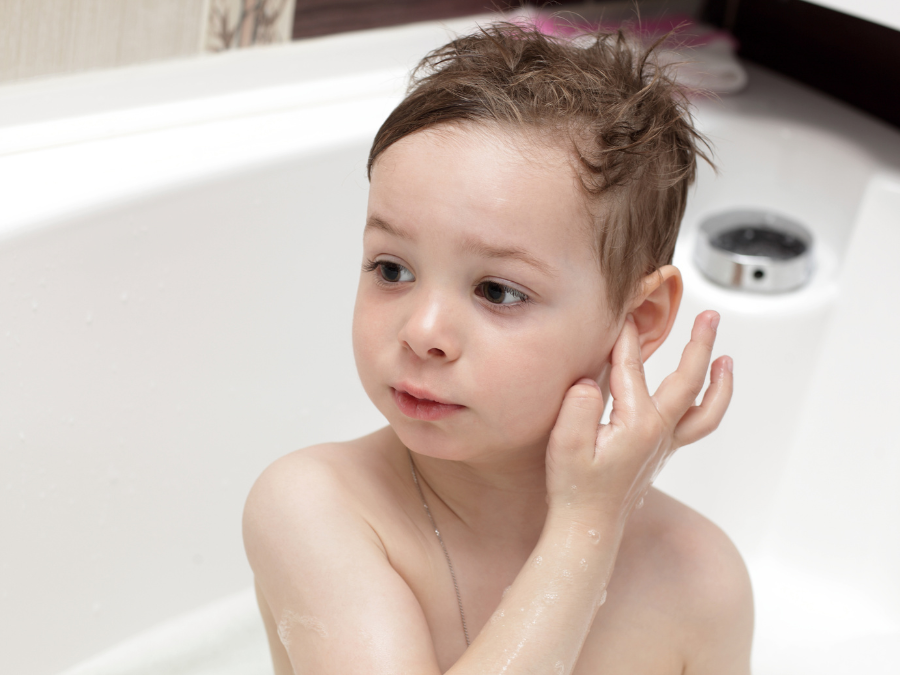
Keeping your ears clean and dry is also crucial in preventing swimmer’s ear.
Avoid swimming in dirty or contaminated water.
If you do swim, make sure to dry your ears thoroughly after by gently tilting your head and pulling on the earlobe to allow any excess water to drain out.
Good Hygiene

In addition, practicing good hygiene and avoiding exposure to known allergens can go a long way in protecting our ears from allergic reactions.
If you do experience any ear-related symptoms during allergy season, it’s important to seek medical treatment as soon as possible to prevent any long-term damage.
Other Allergy Symptoms
You might experience other allergy symptoms along with ear infections, like dry mouth and dry eyes. So, don’t ignore any of these signs and make sure to seek medical help.
Understanding Ear Infections: All You Need to Know
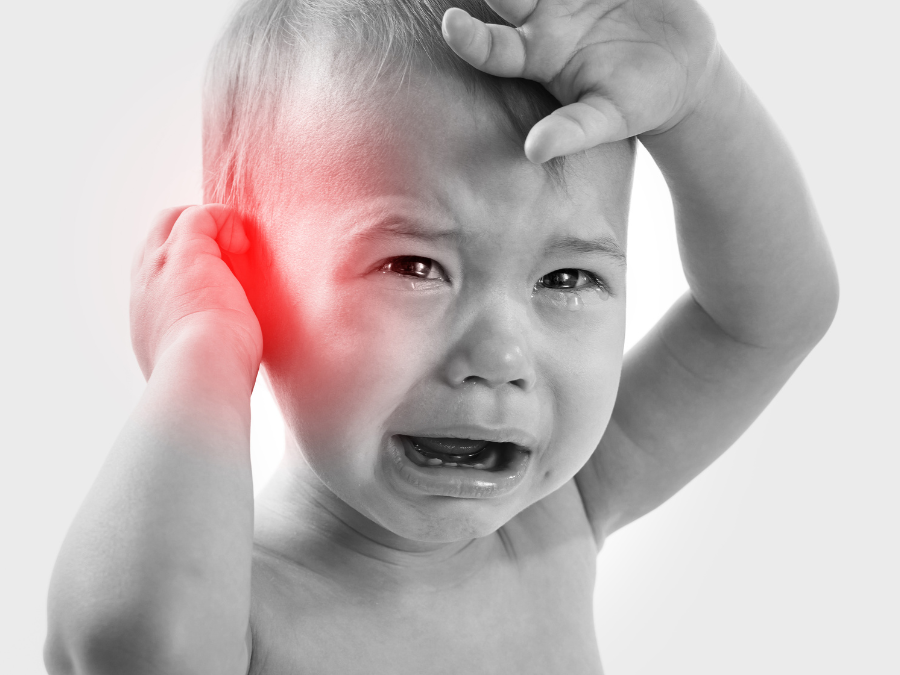
Ear infections can be pretty ghastly, especially when they catch you off-guard during allergy season.
They often result from allergies and can lead to temporary or even permanent hearing loss.
Let’s dive deep into the world of ear infections, their causes, symptoms, and how to prevent them.
What is an Ear Infection?
An ear infection, often noted as a middle ear infection, is a result of allergies, and can occur in the eustachian tube, the inner ear, or the outer ear.
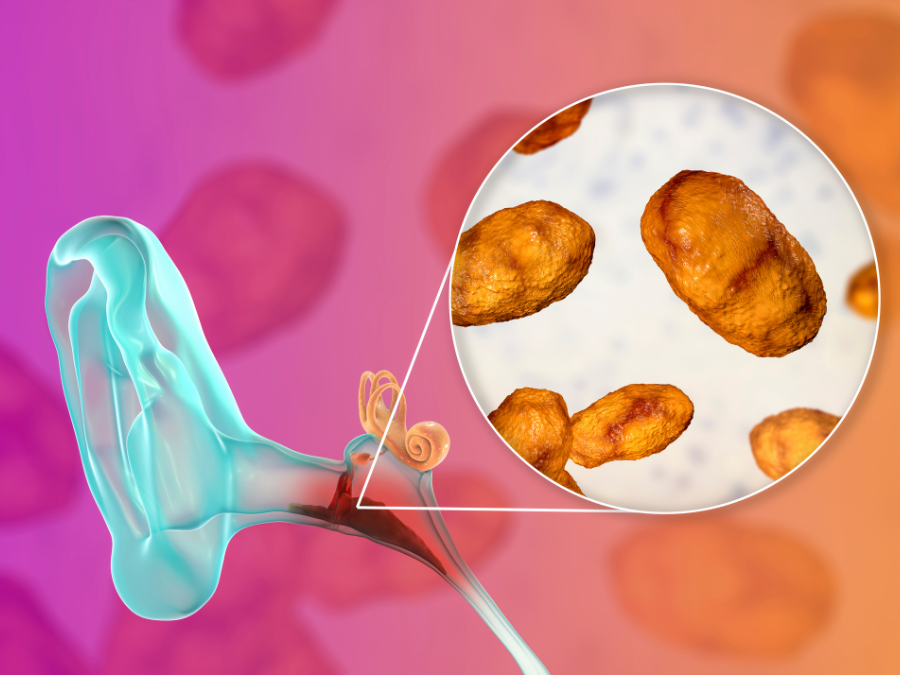
It’s the excess fluid and mucus that create a breeding ground for an infection.
This fluid buildup can cause temporary conductive hearing loss, leaving you with a feeling of fullness in the affected ear.
The Symptoms and Their Impact on Life
Ear infection symptoms can range from ear pain, tinnitus symptoms (like a high-pitched sound in your ear), to sinus pressure and a sore throat.
If left untreated, these can escalate to more severe conditions like Meniere’s disease or even permanent hearing loss.
These symptoms can significantly affect the quality of life and warrant immediate medical attention.
How to Treat and Prevent Ear Infections
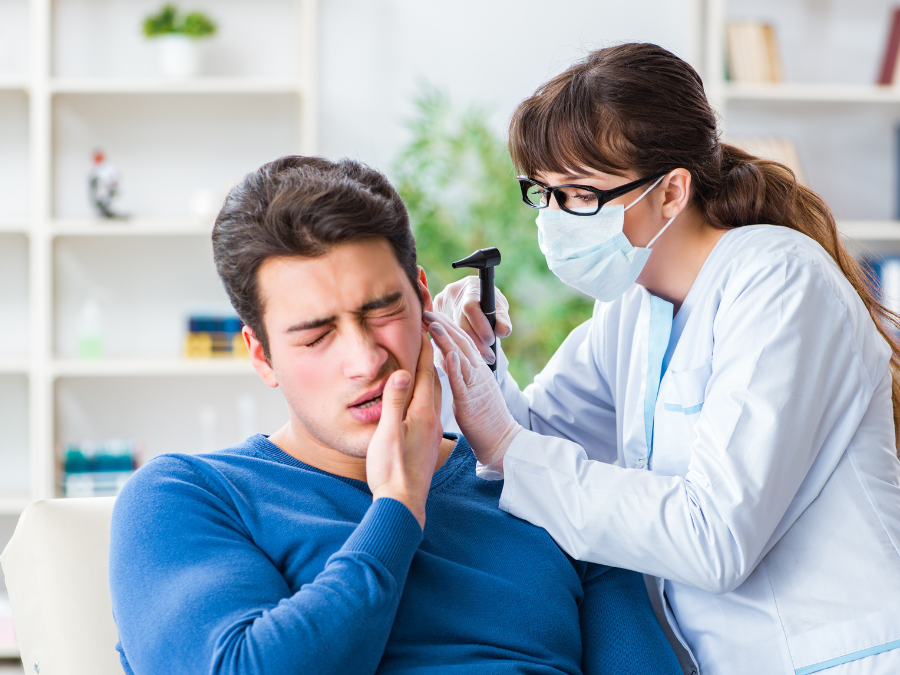
Make sure to consult your medical provider if you have signs and symptoms of an ear infection.
Your medical provider might recommend over-the-counter antihistamines or allergy shots and these common treatments for allergic rhinitis, the medical term for hay fever.
This can help reduce excess mucus production and decrease inflammation of the ear canal.
But in severe allergic reactions, prescription medications may be necessary.
Apart from treatments, avoiding specific allergens can also help prevent the onset of ear infections.
Impact on Hearing and Balance
A buildup of fluid in the middle ear can interfere with the tiny bones that help sound waves travel, affecting your sense of hearing.
Some people may experience temporary hearing loss and tinnitus, while others may encounter balance issues.
If left untreated, this can lead to sensorineural hearing loss, a more permanent and severe form of hearing loss.
Allergies and Ear Infections
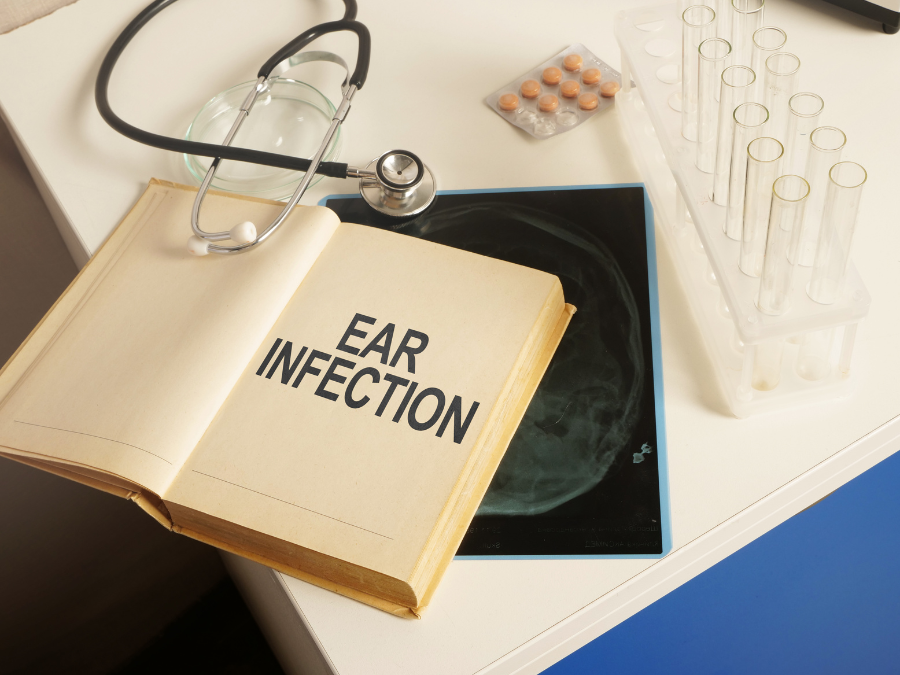
One of the most common ways that allergies impact our ears is through ear infections.
When we have an allergic reaction, our body produces excess mucus which can get trapped in our Eustachian tube.
This can lead to fluid build-up and ultimately result in an ear infection.
Inflammation of the Ear Canal
Another way allergies affect our ears is through inflammation of the ear canal, also known as otitis externa or swimmer’s ear.
This happens when allergens come into contact with the mucus membrane of the ear, causing it to become inflamed and irritated.
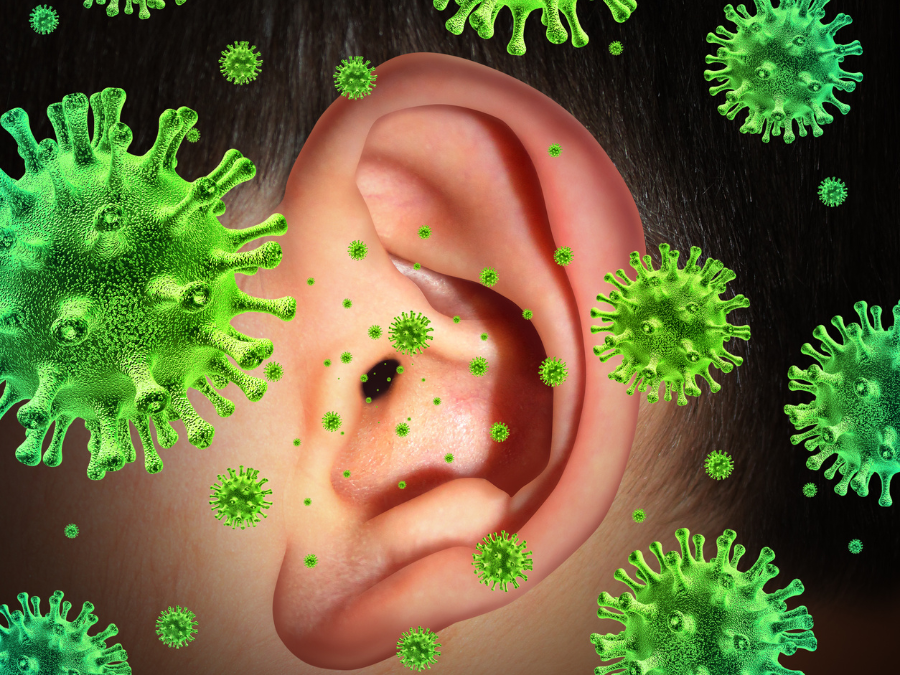
If left untreated, this can lead to hearing loss or even damage the delicate structures of the ear.
If any symptoms persist, it’s important to consult your medical provider for proper evaluation and guidance.
Tinnitus
Allergies can also contribute to tinnitus, a condition where a person experiences ringing or buzzing in their ears.
While not considered a direct cause of tinnitus, allergies can worsen existing cases or trigger it in those who are prone to the condition.
Eustachian Tube Dysfunction
One lesser-known way allergies can affect our ears is through Eustachian tube dysfunction.
This occurs when the tubes that connect our middle ear to our throat become blocked due to inflammation from an allergic reaction.
When this happens, it can cause a feeling of fullness in the ear, muffled hearing, and even pain or discomfort.
In conclusion, recognizing the signs of an ear infection and seeking medical help promptly can significantly improve outcomes.
Remember, your ears aren’t just part of your body but also a vital part of your life.
Take care of them, and they’ll take care of you.
Frequently Asked Questions
What Causes Ear Infections?
Ear infections are commonly a result of allergies.
When your immune system reacts to an allergen, it can produce excess mucus that traps fluid in your ear, leading to an infection.
Can Ear Infections Cause Permanent Hearing Loss?
Yes, if left untreated, ear infections can lead to permanent hearing loss.
It’s essential to seek medical attention if you experience any symptoms of an ear infection.
How Can I Prevent Ear Infections?
Avoiding allergens, maintaining good hygiene, and regular check-ups with an allergy specialist can help prevent ear infections.
If you have severe allergies, your doctor may recommend allergy shots.
Can Allergies Cause Ear Pain?
Yes, allergies can lead to inflammation in your ear, causing pain and discomfort.
Over-the-counter allergy medications can help alleviate these symptoms.

